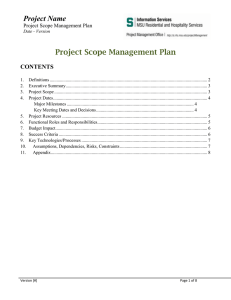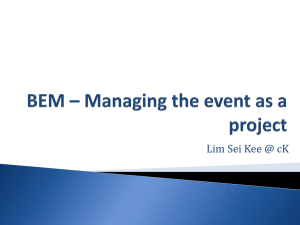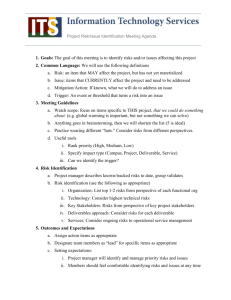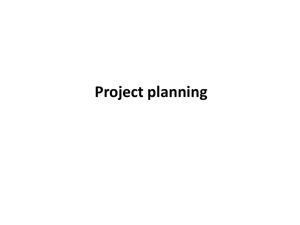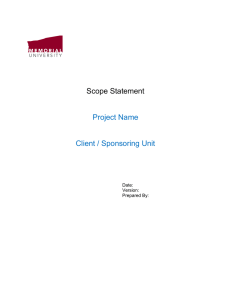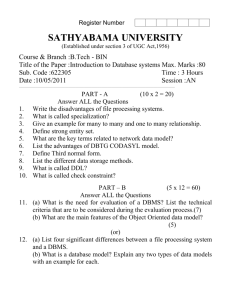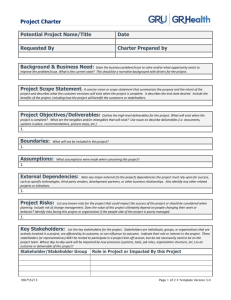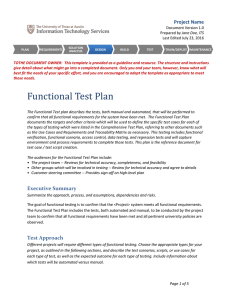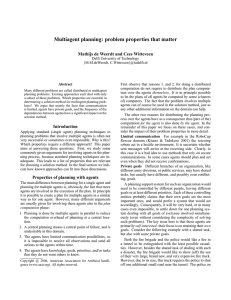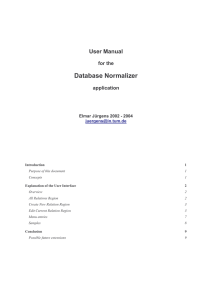Project Management Agenda
advertisement
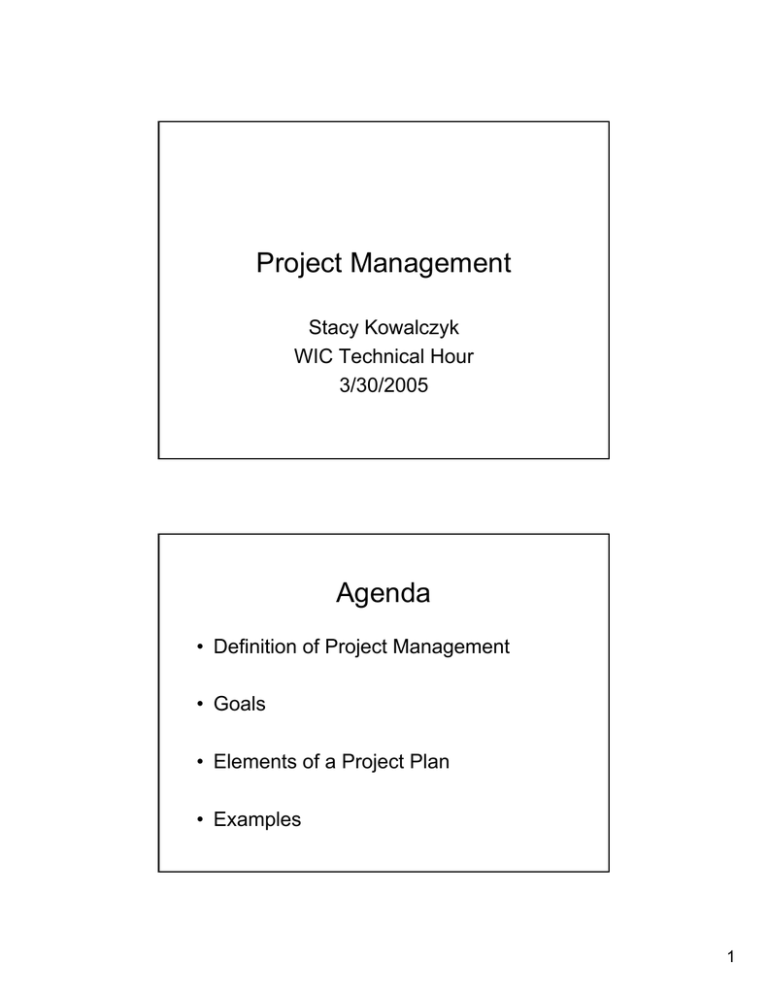
Project Management Stacy Kowalczyk WIC Technical Hour 3/30/2005 Agenda • Definition of Project Management • Goals • Elements of a Project Plan • Examples 1 Definition Project Management is “the discipline of managing projects successfully. Project management can and should be applied throughout the project lifecycle, from the earliest stages of concept definition into operations & maintenance. It comprises the management of all that is involved in achieving the project objectives safely and within agreed time, cost, technical, quality and other performance criteria. Project management provides the "single point of integrative responsibility" needed to ensure that everything on the project is managed effectively to ensure a successful project deliverable.” http://www.maxwideman.com/pmglossary/PMG_P12.htm#Project%20Manager Goals of Project Management • Communication • Control • Risk Management 2 Communication Internal and external communication • Quality – Are we doing the right things – Do we have the right resources – Will we have a good product • Status – Are we on time – What other resources are required Control Knowledge is the key to control – a plan • • • • • Who is working on what What is the status of each deliverable What are the obstacles for the workers What issues need to be resolved Who needs to approve what decisions – communication within the team • Good news and bad news 3 Risk Management Risk factors increase with complexity • Risk Assessment – identify potential risks and determine the probability of occurrence and their effect on the project. • Risk Avoidance – create a plan that minimize the opportunity for the hazard to occur. The Project Plan A management summary document that gives the essentials of a project in terms of its objectives and how the objectives are to be achieved. It should describe how all the major activities under each project management function are to be accomplished, including that of overall project control. The project plan will evolve through successive stages of the project life cycle. http://www.maxwideman.com/pmglossary/PMG_P13.htm 4 Elements of a Project Plan • • • • • • Scope Tasks Resources Estimating Scheduling Monitoring Scope • Definition of the project deliverables • Risk factors – Inappropriate scope – Poorly defined – Feature Creep • Get it in writing and review repeatedly No planning without a scope 5 Tasks • The steps to develop each deliverable • Understand and document the dependencies between tasks • Estimate the effort involved to complete the task • Risk factors – Bad scope – Vague or unknown deliverables – Unknown dependencies – Bad estimates Resources • Anything that is required to complete a task – People – Hardware – Software – Office equipment and supplies – Skills • Risk factors – unavailability of resources when needed. 6 Estimating The estimate should not be the first date at which it is not completely impossible to complete the task. Be as realistic as possible. Scheduling Time, resources, quality – you can only control two • The process of creating the plan – Tasks – Resources – Start and complete dates • The Plan needs to be monitored and revised regularly 7 Monitor the Plan The essential task of the Project Manager is to regularly review and revise the schedule. Tools - Excel • Pros – Good for task management – Easy to monitor simple projects – Simple to enter and update data • Cons – Can not show hierarchy easily – Can not show dependencies – Can be misleading – No pretty Gantt charts 8 Tools – MS Project • Pros – Good for complex projects – Shows dependencies with tasks and resources – Makes pretty Gantt charts • Cons – Complicated to use – Data entry and update is time consuming – Data updates can cause unexpected results with dates and dependencies 9 PM Resources • A site with lots of good information (the glossary is very good) • http://www.maxwideman.com/index.htm • The Project Management Institute • http://www.pmi.org/info/default.asp • Project Manager Today • http://www.pmtoday.co.uk/ 89,800,000 hits on Goggle for Project Management 10
